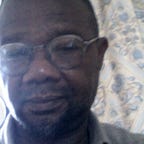Under the Sun: The Futility of a Life Driven By Materialism !
In his introduction to the book of Ecclesiastes Ray C. Stedman in Adventuring Through The Bible, reinforces his thesis on the emptiness of a life driven by material accumulation — citing the case of Novelist Ernest Hemingway. He writes:
Ernest Hemingway “achieved fame and financial success in his early twenties, lived among the literary elites in Paris, hunted big game in Africa, watched the bullfight in Madrid, fished for blue marlin in Cuba, and enjoyed an endless stream of whiskey and women. Yet Hemingway continually questioned the meaning of his own life. On July 2, 1961, he took a shotgun down from the wall of his house in Idaho and ended his earthly existence.”
Ecclesiastes is one of the Old Testament books in the category of “wisdom literature.” The accredited author was King Solomon — a man endowed with wisdom, wealth, and a keen, logical mind. With great resources of money, time, and intellect, King Solomon spent precious time in reflection, surveying life — albeit from the standpoint of a natural person apart from divine revelation. His conclusion, translated from the Hebrew manuscript, is vanity and meaningless. “Meaningless! Meaningless! says the Teacher. Utterly meaningless! Everything is meaningless.” (Eccle. 1:2).
Philosophers over the past two centuries have seen life from human perspectives. Reality is seen from a limited horizontal level of physical appearance and materialism. Solomon apparently explored and pioneered both the modern mechanistic view of life and the existential philosophy of fatalism, embraced by scientists and atheists.
A mechanistic view of life interprets the universe as nothing but a great grinding machine. The universe goes and we are lost in the revolving mindless gears of its machinery. It is akin to reductionism — the belief that life can be reduced to a mere mechanistic process. In other words, a universe is a machine; we are machines. There is no soul, no spirit, and no God. Humankind is “a lonely little speck in the midst of the vast universe — a tiny dot without meaning.” But Scripture disagrees. It says humankind is the Crown of God’s creation with a unique capacity to relate and communicate with Him.
An atheist for example has no recourse to God “under the sun” since he does not believe there’s God. He is left to live by what he sees. He has no thoughts about life after death. Life begins and ends here — under the sun.
The choice for an atheist or unbeliever is to make meaning out of the meaninglessness of his life.
Humankind has continued to make attempts to find meaning in different things on earth — under the sun. Some seek solace in the philosophy of Hedonism — the pursuit of pleasure as the chief end of life.
The Teacher in Ecclesiastes. 2:1 testifies:
I said to myself, “Come now, I will test you with pleasure to find out what is good.’ But that also proved to be meaningless.” Laughter I said, is madness. And what does pleasure accomplish? I tried cheering myself with wine, and embracing folly — my mind still guiding me with wisdom. I wanted to see what was good for people to do under the heavens during the few days of their lives… “ (Eccle.2:1–2).
People seek to find meaning through the acquisition of material possession.
The Teacher in his search for meaning says,
I undertook great projects: I built houses for myself and planted vineyards. I made gardens and parks and planted all kinds of fruit trees in them…I also owned more herds and flocks than anyone in Jerusalem before me. I amassed silver and gold for myself and the treasures of kings and provinces. I became greater by far than anyone in Jerusalem before me. ..I denied myself nothing my eyes desired; I refused my heart no pleasure.” (Eccle.2: 4–10).
King Solomon, the Teacher concludes:
“Yet when I surveyed all that my hands had done and what I had toiled to achieve everything was meaningless, a chasing after the wind; nothing was gained under the sun (v.11).
Material acquisition does not satisfy a human’s deep longing. It does not take one beyond the “under the sun.”
Yet greedy and corrupt politicians in developing third-world countries like Nigeria continue to acquire properties all around the world that add nothing to the quality of their existence and of posterity.
So after devoting eleven chapters of Ecclesiastes to highlighting the futility and meaninglessness of life under the sun, the Teacher points us to the one thing that has meaning — he draws attention to the reality of human existence beyond the sun.
In other words, there is more to life that adds value and quality to human existence and glory to the Creator than material acquisition and world accolades. He is urging the reader to approach the under-the-sun attractions from the perspective of “beyond-the-sun” realities.
Jesus asks, “For what will it profit a man if he gains the whole world and loses his own soul?” (Mark 8:36).
The Teacher starts Ecclesiastes chapter 12 with this admonition:
“Remember your Creator in the days of your youth, before the days of trouble come and the years approach when you will say, “I find no pleasure in them.”
The days of youth are days of vitality, exuberance, vigor, and strength. It is also the days of errors, vulnerability, and teachability.
So, the jobs of pastors, apostles, and other church leaders are cut out for them.
Enough of rabble-rousing motivational sermons inspiring our youths to go out there and compete with corrupt politicians and scammers — in the acquisition of material possession and meaninglessness.
.
